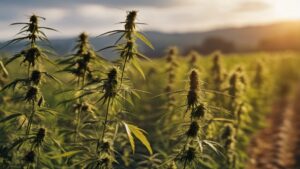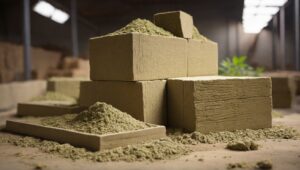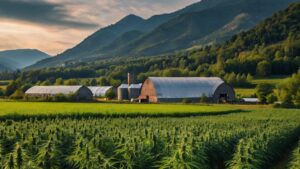
Hemp farming, once shrouded in controversy, is experiencing a renaissance. As we recognize the pressing need for sustainable practices in agriculture, industry, and construction, hemp is emerging as a versatile and environmentally friendly solution. In this article, we’ll explore the promising future of hemp farming and its role in revolutionizing building materials and plastics.
Hemp Farming: A Sustainable Choice
- Environmental Benefits: Hemp is a hardy and fast-growing crop that thrives in a variety of climates. It requires minimal water, pesticides, and fertilizers, making it a more sustainable choice compared to other crops. Additionally, hemp acts as a natural carbon sink, sequestering carbon dioxide from the atmosphere and contributing to a reduction in greenhouse gas emissions.
- Soil Regeneration: Hemp’s deep roots help prevent soil erosion and improve soil health. Its growth can even remediate contaminated soils by absorbing heavy metals and toxins, leaving behind healthier, more fertile land.
- Reduced Deforestation: Hemp can help reduce the demand for traditional timber sources. Its high fiber content makes it an excellent alternative for paper and wood products, thereby preserving forests and biodiversity.
The Future of Hemp in Building Materials
- Hempcrete: Hempcrete, made from hemp fibers, lime, and water, is a lightweight, durable, and eco-friendly building material. It offers excellent insulation properties and is fire-resistant. With growing interest in sustainable construction, hempcrete is gaining traction as an alternative to traditional concrete.
- Biodegradable Plastics: Hemp-based plastics are biodegradable, offering a solution to the growing problem of plastic pollution. These plastics can replace traditional petroleum-based products and provide a more sustainable option for a wide range of applications, from packaging to automotive parts.
- High-Strength Fibers: Hemp fibers are exceptionally strong and lightweight. They can be used to reinforce composite materials in construction, creating stronger and more eco-friendly alternatives to conventional building materials.
The Growing Hemp Industry
- Legislative Changes: In recent years, many countries have revised their hemp-related laws, making it easier for farmers to cultivate this versatile crop. The legalization of hemp has opened up opportunities for research, development, and commercial production.
- Investment and Innovation: The hemp industry is attracting investments and fostering innovation. Research is ongoing to create new and improved hemp-based materials, and entrepreneurs are exploring various applications.
- Sustainability Initiatives: Sustainability-conscious consumers and businesses are increasingly turning to hemp products. As the demand for sustainable and eco-friendly alternatives rises, the hemp industry is positioned for growth.
Conclusion
Hemp farming holds the promise of a more sustainable future. With its environmental benefits and diverse applications in construction and plastics, it’s poised to revolutionize various industries. As we move toward a greener and more sustainable world, hemp is at the forefront of change, offering innovative solutions to some of our most pressing challenges. The future of hemp farming is bright, and its impact on building materials and plastics is a testament to the power of sustainable agriculture and eco-conscious innovation.







